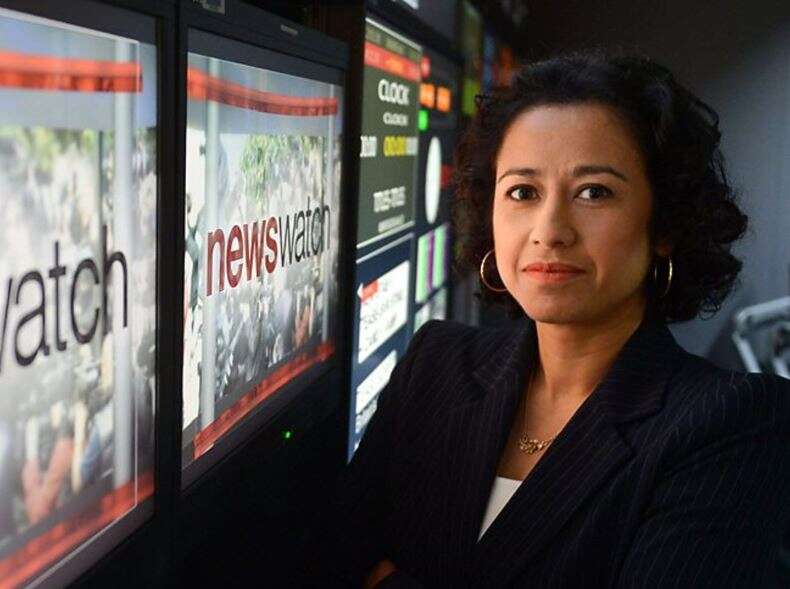
The BBC has spent more than £1m on legal fees fighting equal pay and race discrimination cases brought by staff, it has been disclosed.
The corporation hired external solicitors to spend 2,688 hours on equal pay and race discrimination employment tribunal claims brought since July 2017, and was billed £1,121,652 in fees for both solicitors and barristers.
The figures do not cover costs of ongoing tribunal claims.
The BBC was unable to put a figure on additional costs of using in-house lawyers to deal with staff allegations concerning equal pay or race discrimination, but says that more than 2,400 hours were spent on such cases.
The information was revealed in a letter from the BBC to the DCMS (Digital, Culture, Media and Sport) Committee, which has been made public by the committee after MPs pressed director-general Tim Davie for the figures.
The letter from Andrew Scadding, head of corporate affairs at the BBC, said: “We have diverted some resource to gather the data requested by the committee.”
The BBC has previously said it was “not possible to provide a total cost for external counsel fees” for equal pay employment tribunal claims nor race related claims brought by staff.
Newswatch presenter Samira Ahmed (pictured) is among the BBC employees who have received settlements from the corporation over unequal pay.
Last year, a London employment tribunal found that Ahmed should have been paid the same as fellow presenter Jeremy Vine for their work on Newswatch and Points Of View respectively.
The BBC had argued that the pair were not doing similar work.
[Read more: Samira Ahmed equal pay tribunal win against BBC hailed as ‘resounding victory’]
Broadcaster Sarah Montague confirmed in January that she had won a £400,000 settlement and an apology from the BBC over unequal treatment.
Montague, who previously presented BBC Radio 4’s Today programme alongside veteran journalist John Humphrys, said the deal came after a “long period of stressful negotiations” which was triggered after discovering a disparity in her pay and conditions.
She accepted it after being warned that a battle to try to repair the situation could “run into the millions”.
Carrie Gracie resigned from her position as China editor in January 2018 in protest at pay inequalities.
She was eventually given a full apology by the corporation, and back pay.
The journalist donated the money to gender equality charity The Fawcett Society, to set up a fund for women who need legal advice on equal pay claims.
[Read more: Carrie Gracie says leading battle for equal pay is ‘both a privilege and a curse’]
The disclosure comes following controversy over the abolition of free TV licences for the over-75s.
The universal right to a free TV licence ended last year for the age group and only those in receipt of pension credit will not have to pay.
Julian Knight MP, chair of the DCMS Committee, said: “It is unbelievable that the BBC has spent more than £1m of licence fee payers’ money fighting claims brought by its own staff about equal pay and race discrimination.
“Money that could have gone into making programmes or alleviating licence-fee costs for the over 75s has instead been used to pay the salaries of barristers and lawyers.
“This information was not forthcoming. It was only as a result of the DCMS Committee pressing director-general Tim Davie for an answer that the shocking size of the BBC’s legal bill has been revealed.
“The BBC’s line that it had to divert resources in order to gather the information we requested is frankly completely unacceptable and shows a disregard for public scrutiny.
“And this at a time when the corporation is struggling to balance its books with hundreds of journalists’ jobs being cut.
“This disclosure sits uncomfortably against the BBC’s claim that it offers value for money.
“It must now offer a full explanation of how legal costs were allowed to escalate to such levels. We will be calling on the newly appointed BBC chair Richard Sharp to investigate as a priority.”
Michelle Stanistreet, general secretary of the National Union of Journalists, said the figures showed the BBC had spent a “shocking sum of money” on “defending the indefensible”.
“There have been so many occasions in the past four years when the NUJ has urged the BBC to stop wasting money on lawyers and instead sort things out sensibly with individuals who have been discriminated against and cheated out of pay and pension contributions,” she said.
“There have even been equal pay cases amongst them where we have been confident that the arrears in salary owed were ultimately dwarfed by the cost of the legal team arguing against settling.
“The NUJ has worked hard to stamp out pay inequity and discrimination at the BBC – in acknowledging the financial cost of defending these cases, albeit an incomplete total, the BBC should reaffirm its commitment to resolving outstanding cases, boosting transparency, stamping out discrimination and working with the unions to achieve genuine equity at work.”
Picture: BBC
Email pged@pressgazette.co.uk to point out mistakes, provide story tips or send in a letter for publication on our "Letters Page" blog

